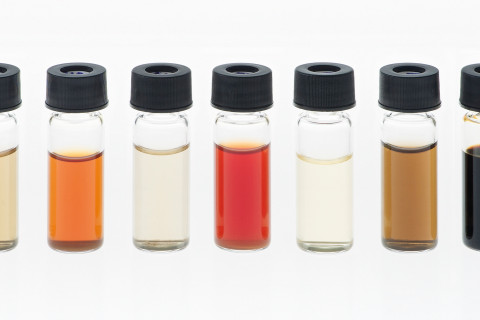The bioeconomy will be our future way of living and doing things. In the bioeconomy, biochar and bio-based chemicals produced from renewable natural resources play an important role.
Biomass processing has been studied at the Kuopio Campus of the University of Eastern Finland for over 15 years. The focus in Kuopio is on process- and molecular-level applications, differing from traditional research addressing the forest-based bioeconomy.
“Current topics of interest include the forest industry’s by-product and side-streams, which previously have mostly been used in the production of energy. Nowadays, biorefining is meticulously tailored, automated and controlled,” says Professor of Biomaterials Technology Reijo Lappalainen.
At UEF, much of the methodological expertise and processing equipment related to biorefining is housed in the SIB Labs infrastructure unit.
“These methods are already being used in several research projects, and we collaborate with the university’s academic departments to find new applications,” says Docent Arto Koistinen, Director of SIB Labs.
Thanks to the unit’s continuous investments in development, various chemical compounds and fine chemicals can now be isolated from biomass. Biochar, on the other hand, can be refined into products for various purification processes and soil enrichment. Biochar and biomass-based refined chemical raw materials can turn into new commercial applications and new flows of income for companies.
Right now, researchers are particularly interested in the production of biochar. Globally, the scientific community has also set its eyes on composites and biopolymers.
“Pyrolysis can also be used to produce bioactive compounds with antimicrobial properties for the needs of pharmacology and toxicology,” says Professor Jouko Vepsäläinen from the School of Pharmacy.
In Finland, the University of Eastern Finland focuses on slow pyrolysis, and VTT Technical Research Centre of Finland on fast pyrolysis. The Kuopio Campus is also home to expertise related to fast pyrolysis liquids. A key focus of development has been to create analytics for liquids, gases and solid carbon fraction.
“The latest gas chromatography-mass spectrometry allows us to determine very small concentrations, even from complex compounds. We are able to bring out hundreds of compounds, which can be identified and classified into groups,” Project Researcher Teemu Vilppo explains.
Docent Olavi Raatikainen and Senior Lecturer Jenni Korhonen from the Institute of Public Health and Clinical Nutrition have participated in the biorefining projects by analysing the biological activity of thermally produced liquids.
“The objective of legislation related to food and agricultural products as well as pharmaceutical substances is to ensure consumer health and safety. This is why new bio-based compounds need to undergo strict scrutiny and why research is needed,” Raatikainen says.
“However, it is vital for research to have industrial applications. Research findings need to be commercialised, thus creating benefits for the domestic economy, too,” Lappalainen concludes.
